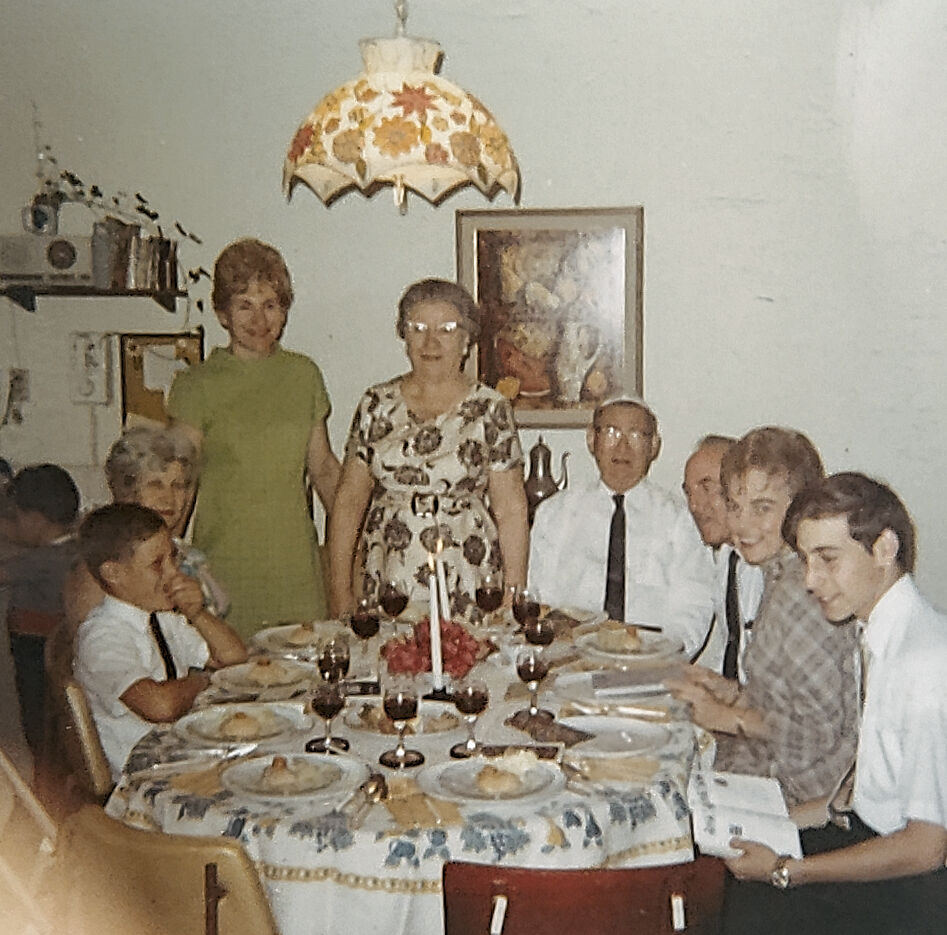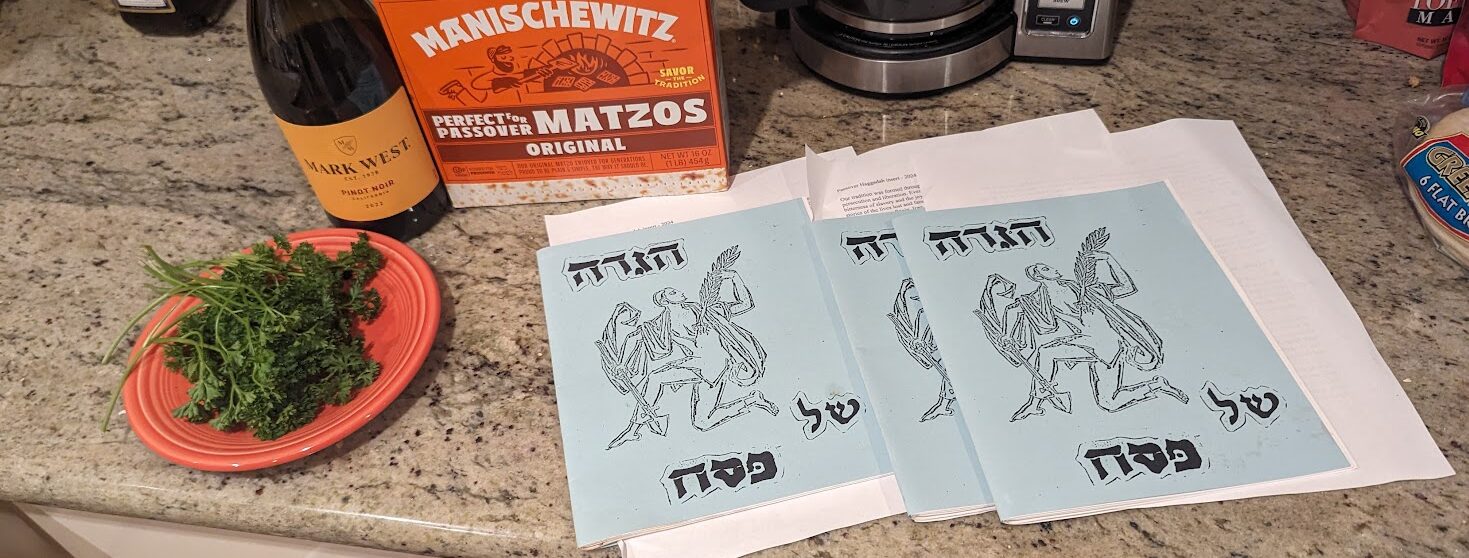Passover is one of my favorite holidays, and its hopeful ode to Spring, renewal, and freedom from oppression is much needed this year.
Passover is one of my favorite holidays, and its hopeful ode to Spring, renewal, and freedom from oppression is much needed this year.
I’m not a convert to Judaism, but I love being part of a multi-faith family (my contribution is a somewhat vague Christian Protestant spiritualism). Each spring, over dinner, we gather and tell the story of the enslavement and liberation of the Jews. It’s so different from the religious services of my childhood, because it’s a family event, done in your home, part of a meal that’s based on what your mom made, and her mom. It’s a tradition that celebrates resilience, passed from generation to generation, the story of ancestors who struggled and held to tradition.
This decentralized, at-home quality can make the religious lesson as flexible as the meal. No yeast in the bread (fleeing Egypt the Jews had no time for leavening), but mom’s Lipton Onion Soup, Russian Dressing, and apricot preserve chicken is perfect.

The service during the meal follows a book, called the Haggadah, which tells the story of Moses leading the Jews out of slavery in Egypt. The original is 2,000 years old, but there are many versions of this book. Unlike the religious books I grew up with, these can be as individual as the family meal. In the US the Maxwell House Haggadah was a popular, simple version, distributed with coffee cans as a Passover promotion starting in the 1930s. Jay’s dad Mel was a school administrator with a creative streak and access to a mimeograph, so he cooked up a Haggadah for the family that brought in some of his midcentury idealistic socialism. The freedom celebrated in their Passover Seder casts a wide net.
The book itself is a gorgeous artifact: copies of copies of copies: grainy type and traced illustrations. I scanned and streamlined a copy that must have been from the 80s, to clarify the order of doing things for beginners like me (first read this, then eat the parsley dipped in salt, then drink the wine), but the book is his. Each person has a copy, and reads a page or a paragraph, so all participate.
The Haggadah we have celebrates Spring, renewal, and freedom from all types of slavery. There’s a poetic list of examples including being enslaved by letting laziness or cowardice keep us from doing what we know to be right, being blinded by ignorance, or letting envy, bitterness, and jealousy “sour our joys and darken the brightness of our contentment.”
Grandpa Mel’s Haggadah says:
“How deeply these enslavements have scarred the world! The wars, the destruction, the suffering, the waste! Passover calls us to be free, free from the tyranny of our own selves, free from the enslavement of poverty and inequality, free from the corroding hate that eats away the ties which unite all souls.”
It wasn’t hard to expand our service to encompass current events, remembering the October 7 victims and hostages, the death, hunger and suffering in Gaza, the way that around the globe racism, islamophobia, antisemitism, homophobia and other fears and hatreds pit people against each other. Only by being unified can we create safety and peace for all. We tried to visualize justice and equality in all corners and to all people.
However you celebrate Spring, I hope it’s in peace, joy, and full of the fresh green of new growth.

